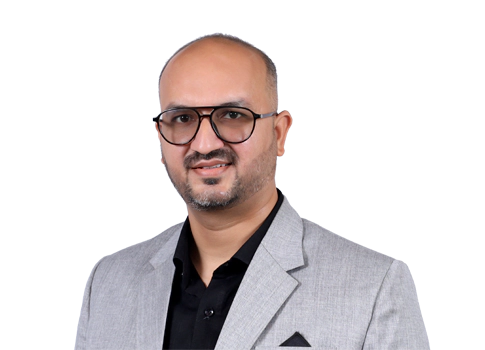- Home
- Faculty
- School of Liberal Studies and Media
- Dr. Pankaj Singh

Dr. Pankaj Singh
Assistant Professor
Profile Summary
Dr. Pankaj Singh is a faculty member of UPES School of Liberal Studies and Media. He is a known expert on the History of Psychology, Introduction to Psychology, Philosophy of Mind, Cognitive Science, Film Philosophy, Applied Ethics, Human Resource Management, Organizational Behaviour, and Philosophy of Management. He has been contributing to conceptual clarity of students in the areas of psychology, behaviour, ethics, philosophy, and management. His research works are published in journals of repute at national and international levels journals.
Work Experience
Before joining academia, Dr. Singh was HR manager in a paper manufacturing unit. Prior to joining UPES, he completed his Ph.D. in Philosophical Psychology from the Indian Institute of Technology Kanpur, India. He has worked on several projects during international fellowships, and research visits, including RTG fellowship by Research and Training Group (RTG) Situated Cognition based at Ruhr-University Bochum and Osnabruck University hosted by Dr. Beate Krickel and Prof Albert Newen; Jagiellonian University, Krakow, Poland, hosted by Prof. Bipin Indurkhya; Centre for Philosophical Psychology at University of Antwerp, Belgium hosted by Prof Eric Myin and Dr. Zuzanna Aleksandra Rucinska; Department of Logic, History and Philosophy of Science at Universidad Nacional de Educación a Distancia, Madrid, Spain, hosted by Dr Manuel Heras-Escribano.
Research Interests
Dr. Singh’s research interests include: Theoretical Psychology, Cognitive Science, Popular Culture and Philosophy, Ethical Leadership and Management, Critical Thinking and Writing, Ethics of Technology, Philosophy of Learning, Philosophy of Cognitive Science, Philosophy of Mind, Philosophy of Science, Existentialism, Language and Cognition, Indian Philosophy, Western Philosophy.
Teaching Philosophy
Dr. Singh teaches topics alongside a contextual example to instill a placed perspective. The contextual method transforms learning into a student-driven process in which students piggyback on examples and ideas before delivering their own. He heavily employs material and examples from popular culture, such as films, games, anime, and TV shows, to promote interest and engagement. The situational and popular culture approaches have benefited students' involvement and interest. Students' enthusiasm and participation in the topic, in his opinion, is a criterion of high-quality learning. He is pleased with the approach. He is also considering experimenting with the notion of gamification and metaverse to make the engagement more dynamic. He also trained more than 1000 students in making their e-portfolios. E-portfolios motivated students both in reflective writing and the usage of engaging media. E-portfolios and situated approach to learning kept students inspired, engaged, and interested in topics of the subject.
Courses Taught
- Learning How to Learn: PG; September 2020 to December 2020.
- Critical Thinking and Writing; UG- January 2021 to June 2021; Credit:3.
- Learning How to Learn: Both UG and PG; August 2021 to December 2021 ; Credit:3.
- Critical Thinking and Writing: UG; January 2022 to June 2022; Credit:3.
- History of Psychology: UG; March 2023 to April 2023 (5 Week course); Credit: 4.
Awards and Grants
- Qualified UGC NET in two different subjects. One in management, the other in philosophy.
- Received visiting RTG fellowship by Research and Training Group (RTG) Situated Cognition
- based at Ruhr-University Bochum and Osnabruck University, Germany hosted by Dr Beate Krickel and Prof Albert Newen.
- Research visit to Jagiellonian University, Krakow, Poland hosted by Prof Bipin Indurkhya.
- Research visit to Centre for Philosophical Psychology at University of Antwerp, Belgium hosted by Prof Eric Myin and Dr Zuzanna Aleksandra Rucinska.
- Research visit to Department of Logic, History and Philosophy of Science at Universidad Nacional de Educación a Distancia, Madrid, Spain, hosted by Dr Manuel Heras-Escribano.
Scholarly Activities
Dr. Singh’s research experience and track record of publications, including academic journals and books with reputable publishers, demonstrates his capability of developing a record of high-quality papers. He has publication of research papers and chapters related to different areas of applied ethics including Theoretical Psychology, Cognitive Science, Popular Culture and Philosophy, Ethical Leadership and Management, Critical Thinking and Writing, Ethics of Technology, Philosophy of Learning, Philosophy of Cognitive Science, Philosophy of Mind, Philosophy of Science, Existentialism, Language and Cognition, Indian Philosophy, Western Philosophy. For details about them, take a look at the following link: https://orcid.org/0000-0002-6570-3634
Contact